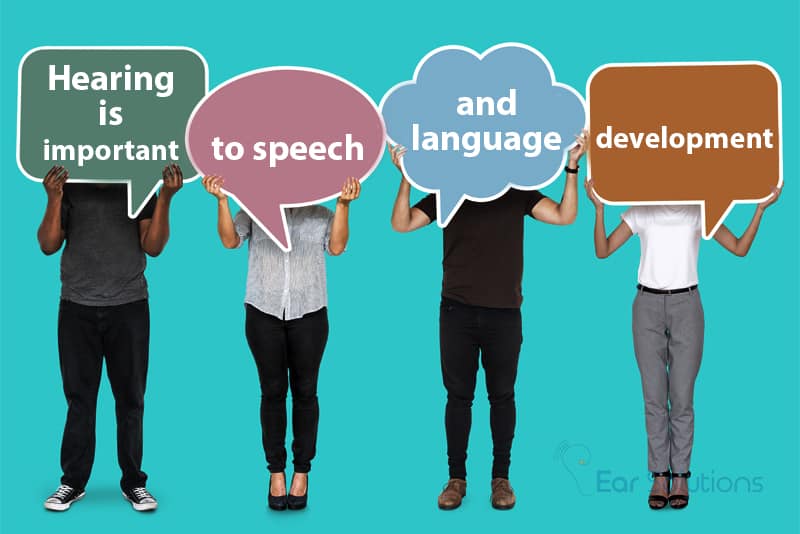The ability to hear well affects more than our ability to communicate including vocabulary and sentence structure, academic achievement, social interaction and career choice.

According to the American Speech-Language-Hearing Association, there are four major ways in which hearing loss affects children:
- It causes delays in speech and language skills
- The language deficit results in lower academic achievement
- Communication difficulties lead to social isolation and poor self-concept
- It may have an impact on vocational choices
Hearing impaired children have trouble learning abstract words like “before” and “after” and understanding words with multiple meanings. They often have trouble hearing certain sounds, such as “s”, “sh”, “f”, “t”, “k” and “ed” which affects the sentences they construct and the words they include in their vocabulary. While the gap between children with normal hearing and those with hearing loss widens as they age, children with hearing loss can catch up if they receive proper diagnosis and treatment.
When should hearing-impaired children get treatment?
The Joint Committee on Infant Hearing (2007) recommends that all infants have a hearing screening by the age of one month, those who fail the hearing screening should have an additional screening by the age of three months and those with confirmed permanent hearing loss receive intervention by the age of six months.
That’s one of the reasons all babies are screened soon after birth. Many health issues, such as congenital heart defects and impaired hearing, often go undetected because they are not visible. Each state runs their own newborn screening program; however, the Center for Disease Control (CDC) recommends babies who are born in a hospital be screened before they leave and those which are not born in a hospital be taken to a hospital or clinic within a few days of birth.
What to do if you suspect your child has hearing loss
According to the National Institute on Deafness and Other Communication Disorders (NIDCD), the first three years are a critical time for acquiring speech and language skills. This is when the brain is developing and maturing, making it a prime time for absorbing language. Experts agree infants should be exposed to an environment rich in sounds and language.
In the first three months of life, children should react to loud sounds and be calmed by a familiar voice. Infants three to six months should follow sound with their eyes, notice noisy toys, react to music and laugh, babble or make gurgling sounds.
If you notice your child does is not responding to sound, consult with your pediatrician or family physician. He may refer you to a speech-language pathologist for further examination. If your child is diagnosed with hearing loss, don’t despair. The important thing is to seek treatment quickly. Research indicates early intervention not only enhances speech and language development, but also improves social skills and academic success.
Children as young as four weeks old can be fit with hearing aids and hearing assistive technology systems. The most common type of hearing aid for infants and young children fits behind-the-ear (BTE) because the earmold can accommodate a wide variety of hearing losses, is easy to clean and adjust, and can be detached and remade as your child grows.
If your child has profound to severe hearing loss that hearing aids won’t treat, they may be a candidate for a cochlear implant, a medical device which is surgically implanted to bypass the damaged part of the cochlea and stimulate the auditory nerve. Your physician can help you determine which treatment is best for your child’s overall hearing health.
At Ear Solutions, We offer comprehensive hearing solutions for permanent hearing loss with services of highest care and latest technology options by experienced audiology experts.
We can take you through the journey of rediscovering hearing in a customized approach to suit your lifestyle and budget.





